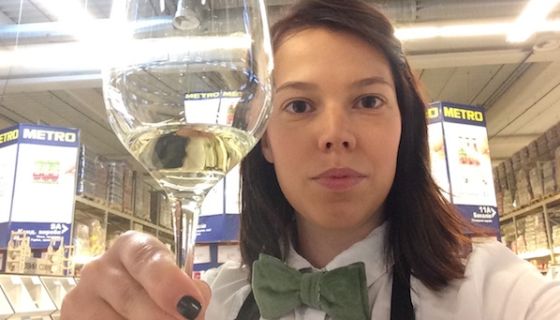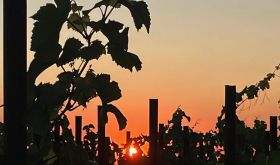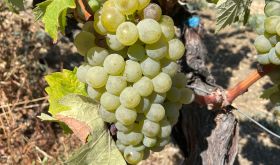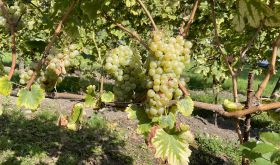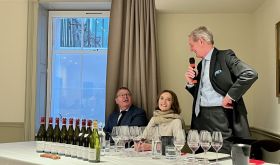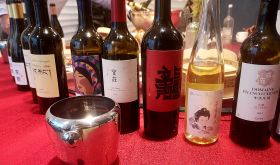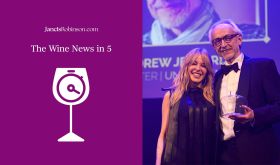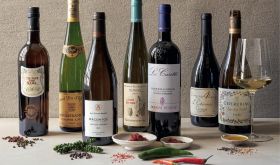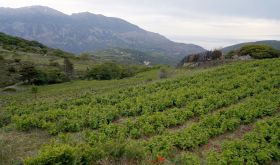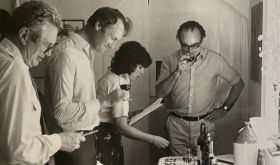My first reminiscence of wines I had when a student is a morning headache. Considering the selection of cheap plonk my budget could afford back in the day, most likely it was sweetish-strongish Isabella with that grape lip balm aftertaste – people’s favourite then and despite recent methanol concerns, still selling well here. I also recollect flipping through my colleague’s copy of Wine Atlas, only the one by Oz Clark, second edition and yet no spark of interest for me at that time, just the glistening of maps and photos.
That colleague sitting next to me was a wine enthusiast everyone in the office turned to with questions like whether Petrus would be a bribe or a gift under the ethics regulation or if Riesling Kabinett is really supposed to be consumed during the working hours. It was only natural to absorb in atmosphere saturated with wine. So when my colleague quit I appeared to be the least unknowledgeable, thus inheriting position of “Mary, the wine girl” along with her Wine Atlas.
Four years have passed and the Wine Atlas is jammed on a shelf packed with dozens of other wine books and tasting journals, covered in magazines and winery brochures, topped with numerous printouts of grids, charts and maps. Now it is not the wine girl but “that freak who left normal job to be wine-something”. How did enjoying a casual glass or three change to starting the day with Purple Pages or yet another twitter argument between Jamie Goode and Robert Joseph – go figure.
There was one occasion when I believe I have caught the wine bug. Among tasting samples on WSET level 2 course that I took in Kyiv in 2014 was a bottle of Albariño de Fefiñanes from Rías Baixas. It turned out to be faulty, the defect in question being caused by 2,4,6-trichloroanisole, as our instructor had melodically articulated. Had she not said it, I would have drunk this Albariño in blissful ignorance. To me, the odour was nothing like cork taint description – no chance of detecting it, had I been chewing wet cardboard for breakfast.
This made me realise that special ability to tell raspberry from strawberry aroma is useless without superpower of distinguishing between mouldy and mousy. It bugs me to think how many times have wine faults passed for “terroir” as I failed to smell them out. Since then I welcome each opportunity to learn off-odours of wine through my own experience, so much so that to any excellent Baden Pinot Noir I would prefer a faulty bottle full of geranium. It may sound a bit masochistic, I know, but so does loving Nebbiolo, some say.
All in all, allure of wine is manifold; in each one it engages different faculties, to everyone it has a very own appeal. In my case, I guess, it was at first a chronic bullshit intolerance. Just look at the wine scene here in Ukraine – naïve consumers test wines for adulteration by immersing a filled glass in the water basin, senseless rules preclude small producers from measuring sulfur dioxide content at the same time requiring it, and on top of that – wine commentators that became usual objects of ridicule. Any rational person would be compelled to get to the bottom of such mess.
As I learned more about the wine world, I became fascinated by how many spheres of knowledge here intersect in order to resolve the diversity of its problems. Wine has a way to excite my curious nature as no other domain does. One day I found myself trying to grasp Fick’s law of diffusion because I was asked how fast does a sparkling wine loose its bubbles; another time – puzzling out a sour taste transduction to illustrate the effect of wine acidity; later on – picking up some Italian through reading Chianti DOCG regulations. To be sure, wine is the best fuel for inquisitive mind in addition to being most flavourful way of relaxing it.

